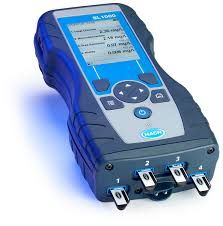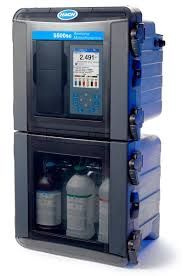Chloramination Devices
Published on by Water Network Research, Official research team of The Water Network for Hach
Chloramination sometimes replaces chlorination to accomplish more reliable disinfection in water systems. Chlorination typically refers to application of chlorine to achieve a residual of free chlorine. Chloramination refers to purposeful reaction of chlorine with ammonia to create monochloramine, NH2Cl.
Chloramination provides a longer-lasting residual in distribution systems and can reduce the likelihood of formation of certain disinfection byproducts (DBPs).
Proper control of the chloramination process is critical to successful formation and maintenance of monochloramine while minimizing or eliminating the possible formation of undesirable chloramines (dichloramine and nitrogen trichloride).
 SL1000 Portable Parallel Analyzer
SL1000 Portable Parallel Analyzer
 5500sc Ammonia Monochloramine Analyzer
5500sc Ammonia Monochloramine Analyzer
Media
Taxonomy
- Purification
- Chlorination
- Testing Instruments
- Process Instrumentation
- Metering
- Chemical Analysis
- Meter Data Collection
- Solutions
- Meters
- Data & Analysis